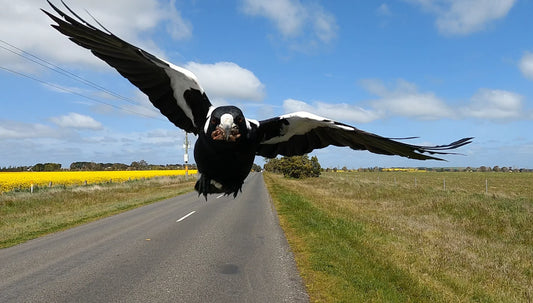The world’s greatest road bike race, the Tour de France, kicked off on July 2nd. For most Aussies, the tour means a few weeks of seeing a highlights on the news, while others may watch an hour or so of highlights on SBS every now and then. But these guys are machines, the cream of the crop, and to truly appreciate the fitness, skill, mental strength and strategy of these elite athletes and their teams, you need to get into it! Learn the tactics, the nuances and the strategy and we guarantee you’ll come to enjoy it.
Here we share seven reasons why it’s worth giving up some shut-eye to watch the world’s best 219 cyclists push themselves to the limit:
The pace
These Lycra-clad athletes are at the top of their game and can maintain phenomenally high speeds during the race.
- The fastest average speed in a mass start road stage of the Tour de France is 50.4 km/h over 194.5 km (Mario Cipollini, 1999)
- The fastest ever average speed in a prologue time trial (under 8km) is 55.2km/h over 7.2km (Chris Boardman, 1994)
- Riders hit speeds in excess of 80 km/h on the downhill runs, and over 60 km/h in sprint finishes.
Try and top that on your daily commute! (Actually don’t, you might get nailed by the police).
The strategy
While speed is crucial, the Tour is ultimately an endurance race – this year the riders will cover 3,360 kilometres over 23 days / 21 stages. And that’s where team strategy comes into play. Each team of nine riders works together to ensure the leader can conserve as much energy as possible, so they can power ahead when required. In essence, the supporting riders protect the team leader, set the pace, and prevent attacks from other contenders, positioning him either for the overall win or a series of stage wins. Within this group, you’ll see the cyclists rotating their positions to share the load.
The battles
The other tactical aspect of the race is the attacks, when a rider accelerates out of the peloton, hoping to break away from – and stay ahead of – the main group. Attacks often take place on the climbs, and team members will attempt to support the leader as they charge ahead of the pack. This year, we expect to see some classic head-to-head battles between Vincenzo Nibali, the defending champion, and the resurgent Spaniard, Alberto Contador.
The spills
While the sprints and mountain descents are guaranteed pulse-racers, it’s the messier moments that’ll have you glued to the screen. Whether it’s the slippery hairpins of the Alps or the cruel corners with a packed peloton, the Tour throws up a series of challenges that can have the riders hitting the deck. Crashes are a daily occurrence, particularly at the tightly packed start of each stage. And these are no ordinary scrapes – three cyclists have died in the history of the race.
The scenes
If you need to avert your gaze from the endless sea of Lycra bike shorts and hair-free man-calves, there are plenty of distractions along the route. From rugged snow-capped peaks to pretty Provence, France never fails to wow in the scenery stakes. The Tour strays beyond the French borders, too. This year the race kicked off in the Netherlands and will go through Belgium before heading into France.
The mad fans
Of all the 15 million spectators lining the road, there’s one man who stands out from the crowd: a 62-year-old German trickster dressed as the devil. Since 1993, Didi Senft has been donning a red jumpsuit, horns and a black cape to reprise his role as El Diablo, waving his hefty trident as riders go by. He’s joined by countless others in fancy dress costumes, adding to the fun.
Cheering on the Aussies
Even in a zombie-like state, our sporting spirit rises to the surface. So if the Australian-owned team Orica-BikeExchange hits the lead, you’ll be ready to jump off the couch and cheer the lads on. Go team.
Inspired to get on your bike? Check out the awesome Road Bikes available at Reid Cycles - great for commuting, getting fit and going fast!



